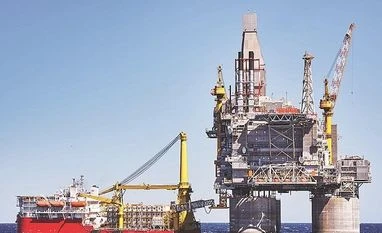Oil prices rose on Tuesday after the world's top oil exporter Saudi Arabia said explosive-laden drones had attacked two pumping stations belonging to state oil company Aramco.
Brent crude futures were at $70.79 a barrel at 1035 GMT, up 56 cents or 0.80%.
US West Texas Intermediate (WTI) crude futures were at $61.35 per barrel, up 31 cents or 0.51%.
The Saudi state news agency quoted Energy Minister Khalid al-Falih as saying that Aramco had halted pumping on the East-West pipeline until the damage was evaluated, but that production and exports were continuing without disruptions.
Falih said the attack was an "act of terrorism" that targeted the world's global oil supply.
Saudi Arabia said earlier that two of its oil tankers were among those attacked off the coast of the United Arab Emirates on Sunday, incidents which ratcheted up tensions in the world's top oil exporting region.
Also Read
A US official said Iran was the likely culprit, but Iranian officials denied responsibility for the incident.
A television station run by Yemen's Houthi group said on Tuesday the Iran-aligned movement had launched drone attacks on Saudi installations, without identifying the targets or time of the attacks.
Tehran has been embroiled in an escalating war of words with the United States over stricter US sanctions, which have cut its oil exports and tightened global supply.
A fifth of global oil consumption passes through the Strait of Hormuz from Middle East crude producers to global markets.
The market was also holding out some hope for flagging US-China trade talks as both sides expressed positive sentiments which may signal that the negotiations are not yet dead.
"The brinkmanship between Washington and Beijing is now seen as a significant hurdle to the growth in global oil demand. Meanwhile, rising geopolitical tensions in the Middle East will further promote volatility."
The negotiations between the United States and China appeared headed towards success last week but have largely unravelled over US accusations that Beijing sought vast, last-minute changes.
China on Monday ignored a warning from US President Donald Trump and moved to impose higher tariffs on a range of US goods including frozen vegetables and liquefied natural gas.
But the Chinese government's top diplomat, State Councillor Wang Yi, indicated on Monday that Beijing hoped for a compromise: "Both countries' negotiating teams have the ability and wisdom to resolve each other's reasonable demands."
Trump on Monday said he expected to speak to Chinese President Xi Jinping at a G20 summit in late June and have "probably a very fruitful meeting".
"The US president's comments likely tilted the balance in favour of the optimists, who continue to expect a rapprochement despite last week's major setback in trade negotiations," analyst Vandana Hari of Vanda Insights said.
)